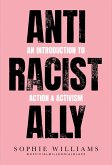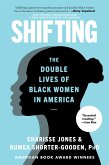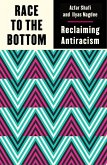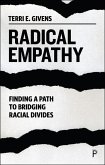It is increasingly recognized that, to achieve social justice, policies and organizations need to apply an intersectional approach, rather than addressing inequalities separately. However, intersectionality is a challenging theory to apply, as policy makers and practitioners often navigate the confines of divided policy areas.
This book examines the use of intersectionality in UK policy and practice, with a specific focus on NGOs, outlining five distinct interpretations of intersectional practice and their implications.
Drawing from extensive fieldwork with a diverse range of equality organizations, this book offers invaluable insights into how policy and practice can be organized in more (and less) intersectional ways.
This book examines the use of intersectionality in UK policy and practice, with a specific focus on NGOs, outlining five distinct interpretations of intersectional practice and their implications.
Drawing from extensive fieldwork with a diverse range of equality organizations, this book offers invaluable insights into how policy and practice can be organized in more (and less) intersectional ways.
Dieser Download kann aus rechtlichen Gründen nur mit Rechnungsadresse in A, D ausgeliefert werden.









